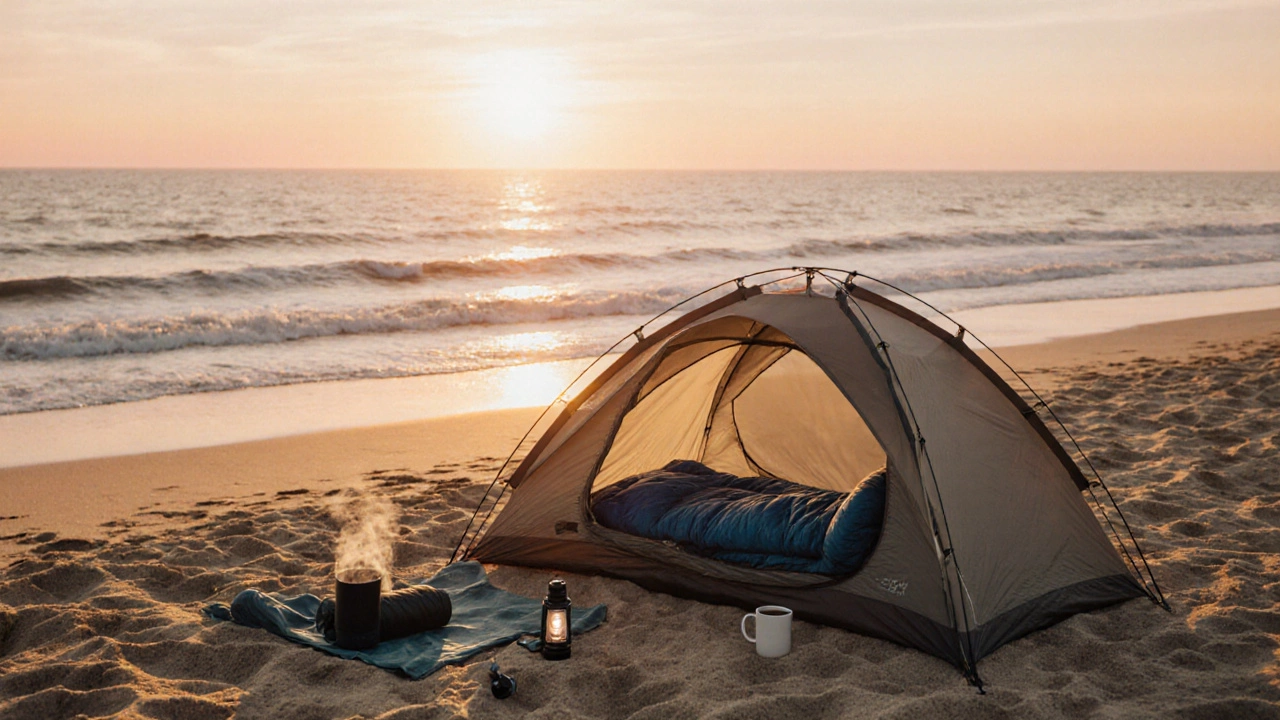Beach Camping Tips: What You Need to Know Before You Pitch Your Tent
When you think of beach camping, sleeping overnight on or near a coastline with a tent or motorhome. Also known as coastal camping, it’s one of the most freeing ways to experience the UK’s shoreline—but it’s not as simple as showing up with a sleeping bag. Many people assume if a beach looks empty, it’s fair game. That’s not true. In the UK, beach camping is heavily regulated, and rules change by region. What’s allowed in Scotland under the Scottish Outdoor Access Code, a legal framework granting responsible public access to most land and water might get you fined in Cornwall. You can’t just roll up at Bournemouth or Tenby and pitch a tent. Local byelaws, private land ownership, and environmental protections all play a role.
That’s why knowing the difference between wild camping, camping without permission on land not designated for camping and beach camping, camping specifically on a sandy or pebbly shoreline matters. Beach camping often falls under stricter rules because of erosion, wildlife nesting, and public safety. Even if you’re not breaking the law, you could be breaking local trust. Many coastal communities rely on tourism, and irresponsible campers make it harder for everyone to enjoy these spaces. The best beach camping spots aren’t hidden—they’re listed. You’ll find official campsites with toilets, showers, and waste disposal near popular beaches. But if you’re after solitude, you need to know where permission is granted, not assumed.
Gear is another big piece. Sand doesn’t play nice with tent stakes. You need heavier pegs, sand anchors, or even weights to keep your tent from becoming a kite. Wind is constant, and tides don’t wait. You need to know the high tide line—pitch too close, and you’ll wake up with soggy gear. A good groundsheet is non-negotiable. And forget regular camping chairs; they sink. Bring something low and wide. Don’t forget to pack out every bit of trash, including food wrappers and cotton swabs. Leave No Trace, a set of outdoor ethics designed to minimize human impact on nature isn’t just a slogan here—it’s the only way to keep beaches open for future campers.
Some beaches allow overnight stays with a permit. Others have seasonal bans to protect nesting birds. A few let you stay in a motorhome but not a tent. The posts below break down exactly where you can legally sleep, what gear actually works on sand, how to avoid fines, and what alternatives exist if the beach is off-limits. You’ll find real stories from people who’ve done it right—and some who got it wrong. No fluff. Just what you need to know before you head out.
Free Beach Camping in California: Where, How, and What to Know
Discover where you can legally camp for free on California's beaches, learn the rules, safety tips, and gear checklist to enjoy a no‑cost shoreline night without getting fined.
